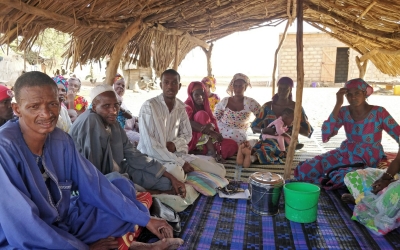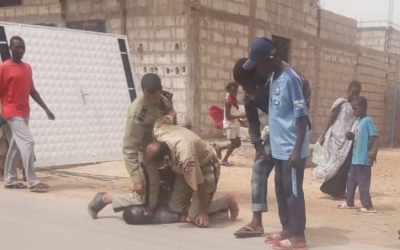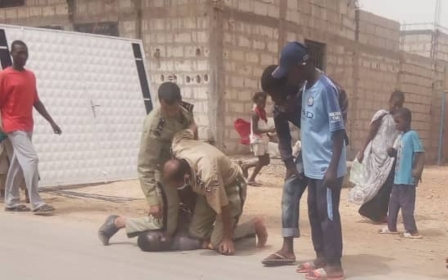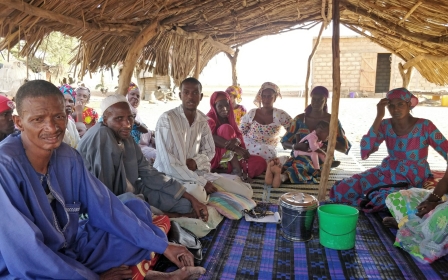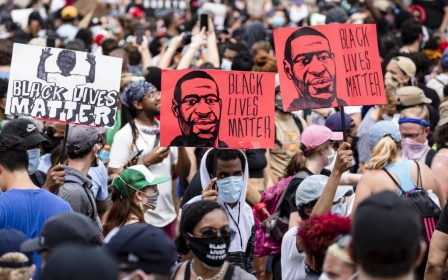Pompeo urged by US congressmen to rethink Mauritania policy over human rights abuses
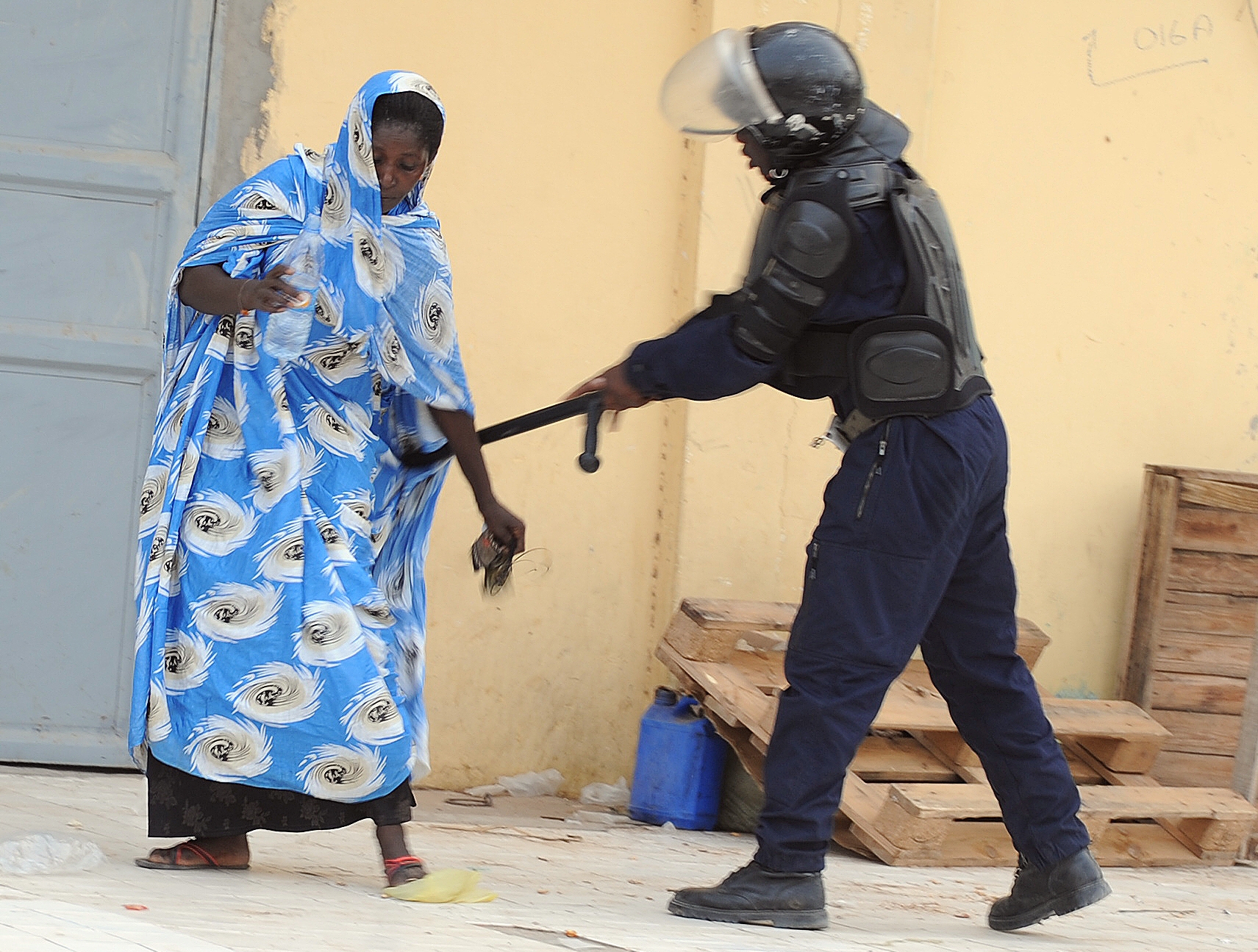
Five US congressmen have sent a letter to Secretary of State Mike Pompeo urging Washington to reconsider its relationship with Mauritania amid evidence of racism, human trafficking and slavery, prompting a response from the West African nation’s governmental human rights commission that staunchly defended its record.
The country’s treatment of its Black population was further called into question last week when political opposition parties and civil society groups urged visiting French President Emmanuel Macron to pressure the government to dismantle what they described as a system of “disguised apartheid".
These efforts to lobby what are two of the country’s most stalwart allies come as Mauritanian activists make renewed calls for the government to address racial injustices amid a global groundswell of Black Lives Matter protests.
Mauritania has for years been a key ally in the US "war on terror" across the restive Sahel region. In March, it hosted Flintlock, an annual US-led military training exercise attended by several African and European partners.
Relations between the two nations stretch back to 1960 when the US became the first country to recognise Mauritania’s independence from France.
The US is also home to the second-largest Mauritanian diaspora community after France, many of whom are Black Mauritanians who fled racial pogroms in the late 1980s.
Still, in the strongly worded letter, the congressmen urged Pompeo to put human rights front and centre of the US relationship with the Saharan nation.
“While Mauritania remains an important partner in our fight against terrorism in the Sahel, we believe that it is critical to also keep human rights at the forefront of bilateral relationship,” they wrote.
The congressmen said that “impunity for racial discrimination, including ethnic cleansing” and “hereditary slavery and human trafficking constitute grave violations of human rights that the United States should work to remedy through our engagement with the country".
Dated 25 June, the letter was signed by Republican representatives Steve Chabot, Christopher H Smith, Ron Wright, F James Sensenbrenner Jr and Tim Burchett.
Mauritania’s office of the commissioner for human rights responded with a lengthy statement about the letter after an inquiry from Middle East Eye: “With all due respect to Congressmen’s viewpoint, we do not share their opinion on the country’s human rights record, and formally reject the ungrounded allegations of human rights abuses the letter contained.”
The congressmen's letter said: “Mauritania has a long history of hereditary slavery based on ethnic and racial discrimination against Black Mauritanians.” The country formally abolished the practice in 1981 but criminalised it only in 2007, and in 2018 the Global Slavery Index estimated that 90,000 people in Mauritania were living under modern slavery.
The commission said that Mauritania had made “remarkable progress” in combatting slavery and trafficking, pointing out that the US State Department had last month upgraded it to a tier 2 country in the fight against trafficking, meaning that it was making significant efforts to comply with international standards.
'With all due respect to Congressmen’s viewpoint, we do not share their opinion on the country’s human rights record'
- Mauritania's commission for human rights
The country’s previous status as a tier 3 country - one that was not attempting to comply with basic standards - led the Trump administration to suspend non-humanitarian and non-trade-related foreign assistance in 2018.
The State Department’s latest report on human trafficking, released on 25 June - the same date that the congressmen wrote to Pompeo - acknowledged that Mauritania had made some progress since last year by convicting five slaveholders and taking steps to reduce child trafficking.
Despite this, the report said that “the government has rarely imprisoned convicted slaveholders, and the government did not proactively identify any trafficking or hereditary slavery victims”.
The congressmen also criticised the lack of accountability for purges by state forces of Black African Mauritanians between 1989-1991, in which tens of thousands - about eight percent of the community - were deported or forced to flee to neighbouring countries. “Mauritania has not provided accountability for mass murders, repression and unwarranted deportations,” their letter said.
Most of those purged from the country were subsistence farmers working on the little arable land Mauritania has, which lies along the Senegal River valley in the south. Others were intellectuals, businesspeople and professionals, members of the thriving urban elites who were pushed out as the government pursued a sectarian Arab-nationalist ideology.
Black Africans make up about a third of the country’s population, as do Arab-Berbers, the dominant group. Haratin, the Black descendants of slaves once owned by Arab-Berbers, account for the rest.
Despite the violence, a law was passed to shield the perpetrators from justice and an amnesty was granted to the security forces involved.
“This impunity has left several Mauritanians without recourse for wrongs they and their families suffered almost three decades ago,” the letter said.
Still, Mauritania’s rights commission said that the government had “taken the necessary measures to address the issue and settle its aftermath".
About 25,000 Mauritanian refugees in Senegal were able to return home in a “dignified and organised manner to their homeland”, the commission said, adding that it had made efforts to “ensure that the returnees become property-owners”.
It said the government “did acknowledge that state agents committed grave abuses”, but stopped short of saying anyone had been held accountable.
The commission further claimed that “justice and reparations have been adequately delivered to the victims and measures have been taken since then to compensate victims and survivors".
Yet almost 30,000 Black Mauritanians who fled the violence still live in a number of refugee camps in Mali and Senegal, unable to work and with little medical care.
'Mauritania has not provided accountability for mass murders, repression and unwarranted deportations'
- US congressmen
According to a 2018 survey of refugees in both the neighbouring countries taken in by the United Nations refugee agency (UNHCR), only 1.5 percent of respondents said they would opt to return to Mauritania.
Refugees in Senegal told MEE last year that the prospect of facing racial violence on their return was key among the reasons.
Activists said that refugees have often returned home to find their property and the land they abandoned when they were forced to flee now occupied by others.
The commission failed to address concerns in the letter that “Mauritania has continued to strip the citizenship of tens of thousands of Black Mauritanians” since the purges.
Nevertheless, the commission claimed that “the principle of non-discrimination is established in the Constitution” and that there was “equality of treatment in access to justice and equal access to public services”.
In practice, things are far different, five political parties and civil society groups said last week in a letter to France's Macron, who was headed to the capital Nouakchott to attend a key meeting of the G-5 Sahel, a French-backed regional counter-terrorism force headquartered there.
“Mauritania, which you are going to visit as part of the G5-Sahel, is a country in which there is a 'disguised apartheid', not codified as it was in South Africa,” the letter said.
“Unwritten laws, in effect, confine the Mauritanian Black man at best, to the rank of second-class citizen, at worst, a victim of the denial of humanity through slavery.”
The letter, which was also signed by Alassane Dia, a prominent anti-racist activist, added: “Apartheid was fought by the free world in its time, thus, you cannot keep a low profile on what is happening with us.”
Abdoulaye Sow, a Mauritanian-American activist who fled the racial pogroms of the late 1980s, told MEE: “To be honest, we don’t want any measures to be taken that will harm the Mauritanian people.
'Mauritania, which you are going to visit as part of the G5-Sahel, is a country in which there is a 'disguised apartheid', not codified as it was in South Africa'
- Letter to President Macron
“We just want countries who have good relationships with Mauritania to tell them that there is something fundamentally wrong within this country and that they should take this into consideration when dealing with it,” said Sow, who spoke to MEE from Texas.
“It is as valid for the United States as it is for France.”
Speaking from Cincinnati, Ohio, activist Papis Wane said members of the Black Mauritanian community had approached the congressmen months ago, but that the Black Lives Matter movement had given their case added momentum.
“This is one global movement against racial justice. We’ve been trying hard to make sure that everyone sees it that way, " he said.
Middle East Eye propose une couverture et une analyse indépendantes et incomparables du Moyen-Orient, de l’Afrique du Nord et d’autres régions du monde. Pour en savoir plus sur la reprise de ce contenu et les frais qui s’appliquent, veuillez remplir ce formulaire [en anglais]. Pour en savoir plus sur MEE, cliquez ici [en anglais].



